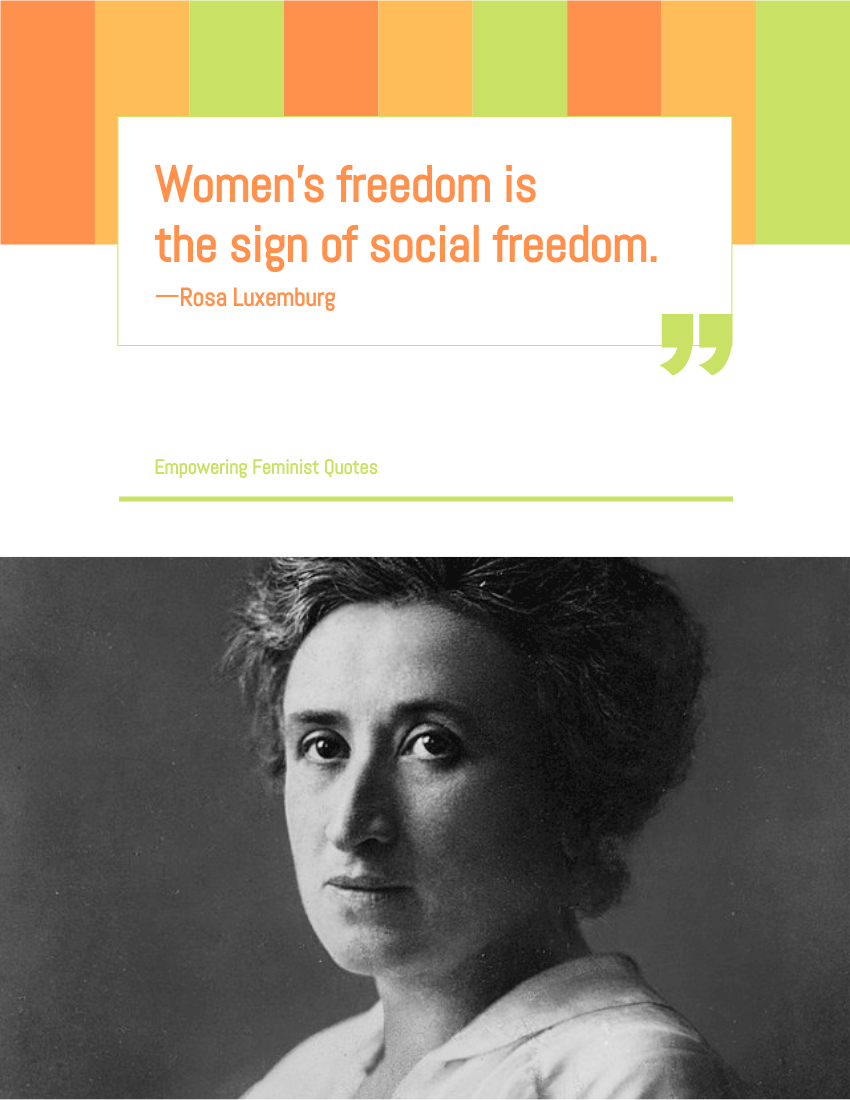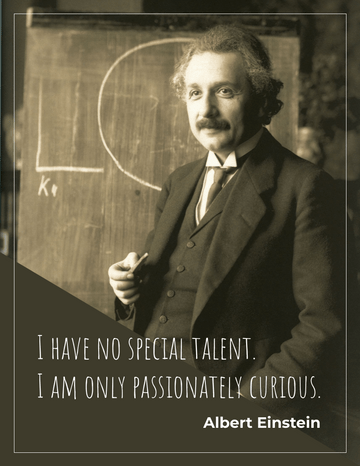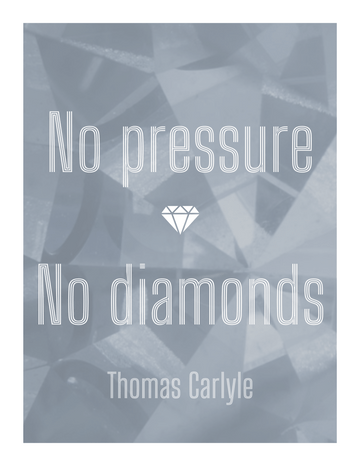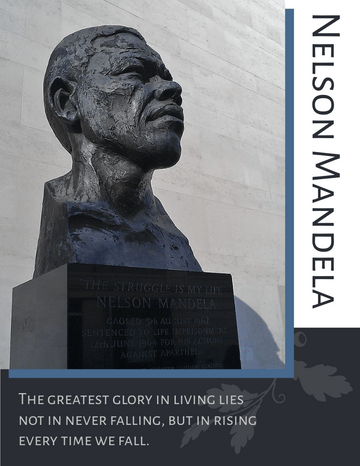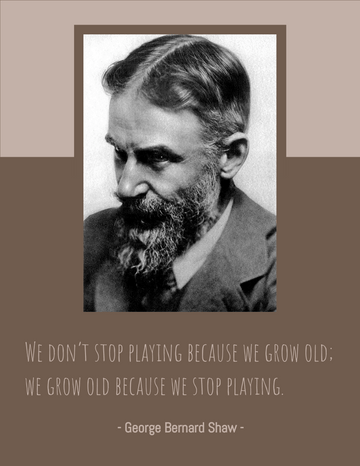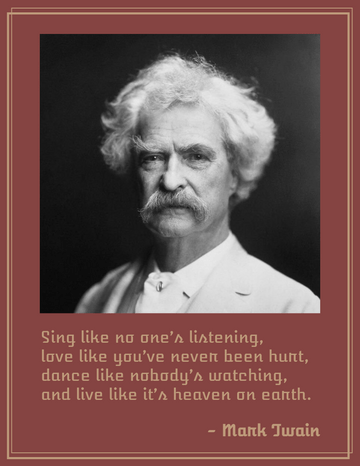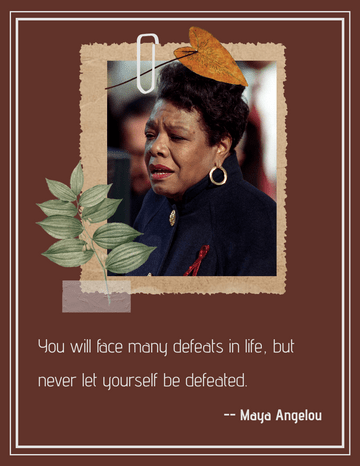"Women's freedom is the sign of social freedom." ―Rosa Luxemburg
Who is Rosa Luxemburg
Rosa Luxemburg was a Polish and naturalised-German revolutionary socialist, Marxist philosopher and anti-war activist. Successively, she was a member of the Proletariat party, the Social Democracy of the Kingdom of Poland and Lithuania (SDKPiL), the Social Democratic Party of Germany (SPD), the Independent Social Democratic Party (USPD), the Spartacus League (Spartakusbund), and the Communist Party of Germany (KPD). Born and raised in an assimilated Jewish family in Poland, she became a German citizen in 1897.
Click here to read this quote book.
Commemoration
Poland
In spite of her own Polish nationality and strong ties to Polish culture, her stance against the creation of a bourgeois Polish state and later criticism from Stalinists have made Róza Luksemburg a controversial historical figure in Poland's present- day political discourse.
Germany
The famous Monument to Rosa Luxemburg and Karl Liebknecht, originally named Monument to the November Revolution (Revolutionsdenkmal) which was designed by pioneering modernist and later Bauhaus director Ludwig Mies van der Rohe and built in 1926 in Berlin-Lichtenberg and destroyed in 1935.
Russia
Opponents of the far-left had a very different interpretation of Luxemburg's murder. Anti-communist Russian refugees occasionally expressed envy for the success of the SPD and the Freikorps in defeating the Spartacus Uprising, which was seen as a German equivalent to the Bolshevik Revolution. In a 1922 conversation with Count Harry Kessler, one such refugee lamented.
In popular culture and literature
Due to Luxemburg's importance in the development of theories of Marxist humanist thought, the role of democracy and mass action to achieve international socialism as a pioneering advocate of workers' rights, gender quality, and as a martyr to her cause, she has become a minor iconic figure, celebrated with references in popular culture.
Bulgarian writer Hristo Smirnenski, who praised communist ideology, wrote the poem "Rosa Luxemburg" in tribute to Luxemburg in 1923. Rosa Luxemburg (1986), directed by Margarethe von Trotta. The film, which stars Barbara Sukowa as Luxemburg, was the winner of the Best Actress Award at the 1986 Cannes Film Festival. In 1992, the Quebec painter Jean-Paul Riopelle realised a fresco composed of thirty paintings entitled Tribute to Rosa Luxemburg. It is on permanent display at the National Museum of Fine Arts of Quebec in Quebec City. Luxemburg influences the lives of several characters in William T. Vollmann's 2005 historical fiction Europe Central. Rosa, a novel by Jonathan Rabb (2005), gives a fictional account of the events leading to Luxemburg's murder. The heroine in the novel Burger's Daughter (1979) by Nadine Gordimer is named Rosa Burger in homage to Luxemburg. Harry Turtledove's Southern Victory series of alternate history novels contains an American socialist politician character named Flora Hamburger, a reference to the real historical personage of Luxemburg.
